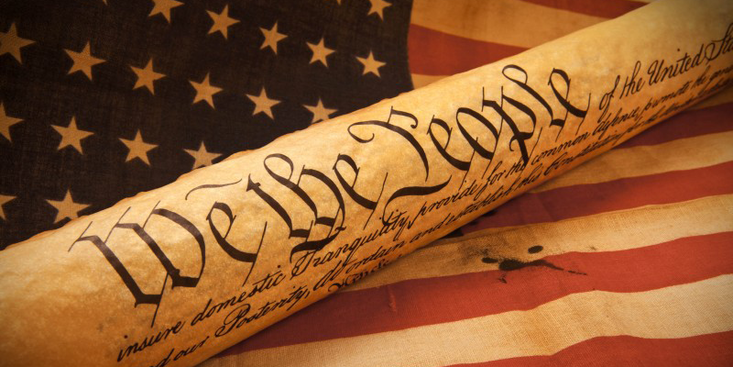|
My husband and I sometimes discuss the rights of Americans, the kind mentioned in the Bill of Rights. Specifically, this past week we spoke of Amendment IV, which addresses search and arrest.
In the past month, a number of scenarios arose to cause debate. Traveling on some back roads headed towards Winchester, we were stopped at a police checkpoint. He rolled down his window and the officer stated they were doing driver’s license checks and could my husband produce his identification. He was friendly and polite, there may even have been some banter. Despite this, my husband was reluctant to provide his ID since he believed it was a violation of his rights. There was no probable cause to suspect any wrongdoing, so he was under no obligation to cooperate. Would most people see it that way? Probably not. Would most people hand over their ID without a second thought? Probably. Is my husband correct? I think he is. Upon further investigation, I verified that at various checkpoints, drivers are not under any obligation to cooperate. While it’s not illegal for police to ask someone if they’ll answer questions, the person approached may decline to speak. He or she may not be detained without reasonable and articulated probable cause. My husband cooperated so as not to create friction, but regretted it almost instantly. His opinion is that our rights are being eroded year after year — with many blindly handing them over — and if we don’t start protecting them, they’ll be gone before we know it. I took my husband along to Costco recently and he was appalled at its policy to check the receipt and cart of all shoppers as they exited the store. He said it was unconstitutional and walked out the door without stopping. Because we went unnoticed (which is unusual), no commotion ensued. When I investigated the legality of this policy, the answers were murky. In cases of stores open to the general public, it does not appear legal to detain shoppers to check their purchases. However, in the case of Costco, which is a club requiring membership, it can make and enforce its own rules. Once again, does anyone question this policy? Or do we just hand over our receipt to either avoid unpleasantness or because we are ignorant our rights are being violated? In the last week, we’ve heard or experienced situations in which security personnel or emergency personnel acted outside of their legal parameters. Because we are taught to respect and obey authority, understanding our rights when dealing with various entities is sometimes unclear. It would never occur to me to not cooperate with a police officer, for instance, or question whether my rights were being violated aside from obvious scenarios. As such, I’m vulnerable. It’s my responsibility to know my rights. This doesn’t mean I should be contentious or convinced of foul play. But it does make sense to be cautious and protective, especially when I’ve done nothing to cause suspicion. I tend to be a go-along-to-get-along kind of gal. I will choose to be uncomfortable so you can be more comfortable. I will put the majority first, even when their agenda is not in my best interest. I will always try to be accommodating because it’s my nature. As such, I don’t rock many boats or challenge the status quo with regularity. It occurred to me when things happen subtlety or for what we deem a good reason, we may not see the detriment in it. My husband makes a valid point about our duty to protect our rights or watch them erode further. We’ve seen various debates over other amendment rights, especially Amendment II, the right to bear arms. In the news lately was Apple fighting the FBI’s order to develop software to bypass security features on a phone, citing infringement of first amendment rights. We’ve all seen our rights erode on large and small scales. Some examples: since the tragedy of 9/11, the Transportation Security Administration is now allowed to search anyone they want without any shred of probable cause. On a smaller scale, in Charles Town, sometimes unconstitutional ordinances have been put in place to achieve some fixed objective. While I understand why these methods were championed (to catch bad guys), these altered rights whittle away at those guarantees of individual liberty and freedom contained in those first ten amendments for all citizens. And that’s a dangerous precedent. Our amendments were created after a lot of blood was spilled to secure our land and democracy. Many have fought to preserve our way of life since. Before we just hand those rights over, let’s be thoughtful about what they truly mean. This column appeared in The Journal on Sunday, April 10, 2016.
1 Comment
|
Summary
A collection of columns, articles and general a-musings. Archives
July 2024
|
Katherine Cobb


